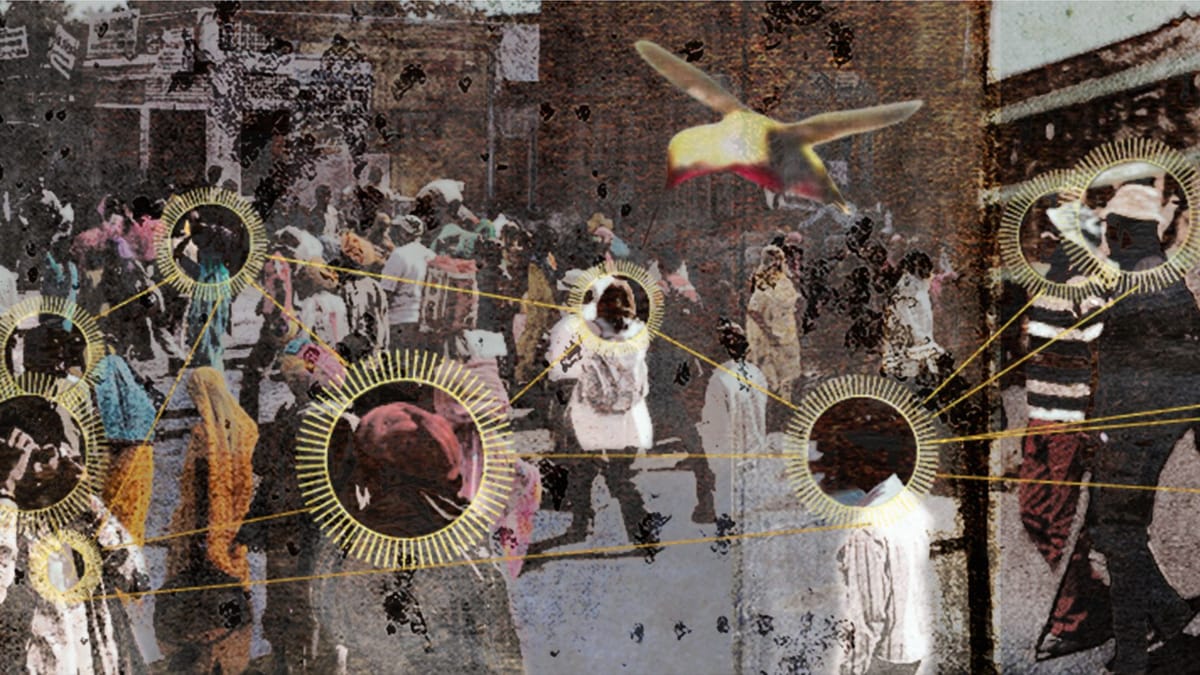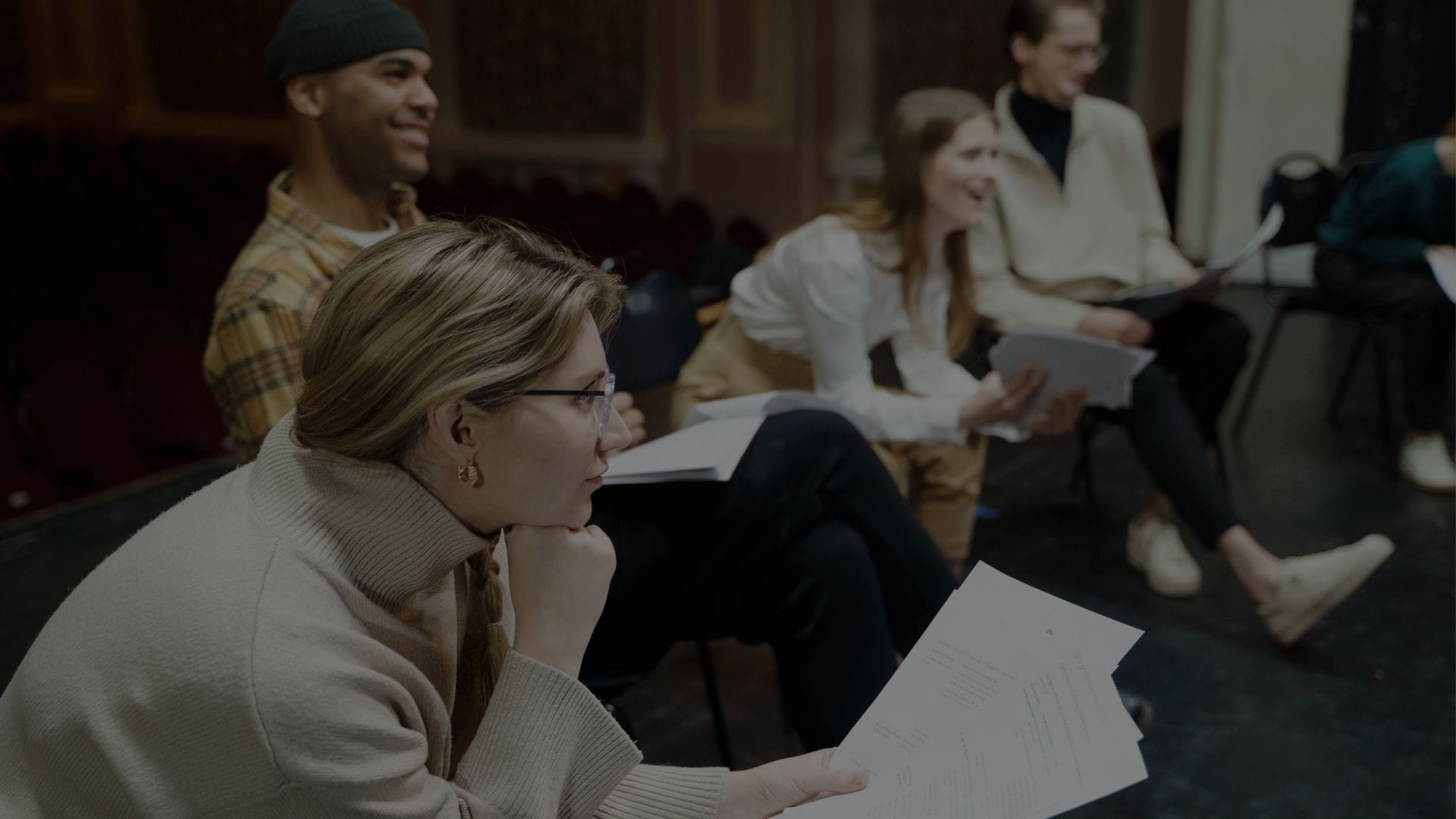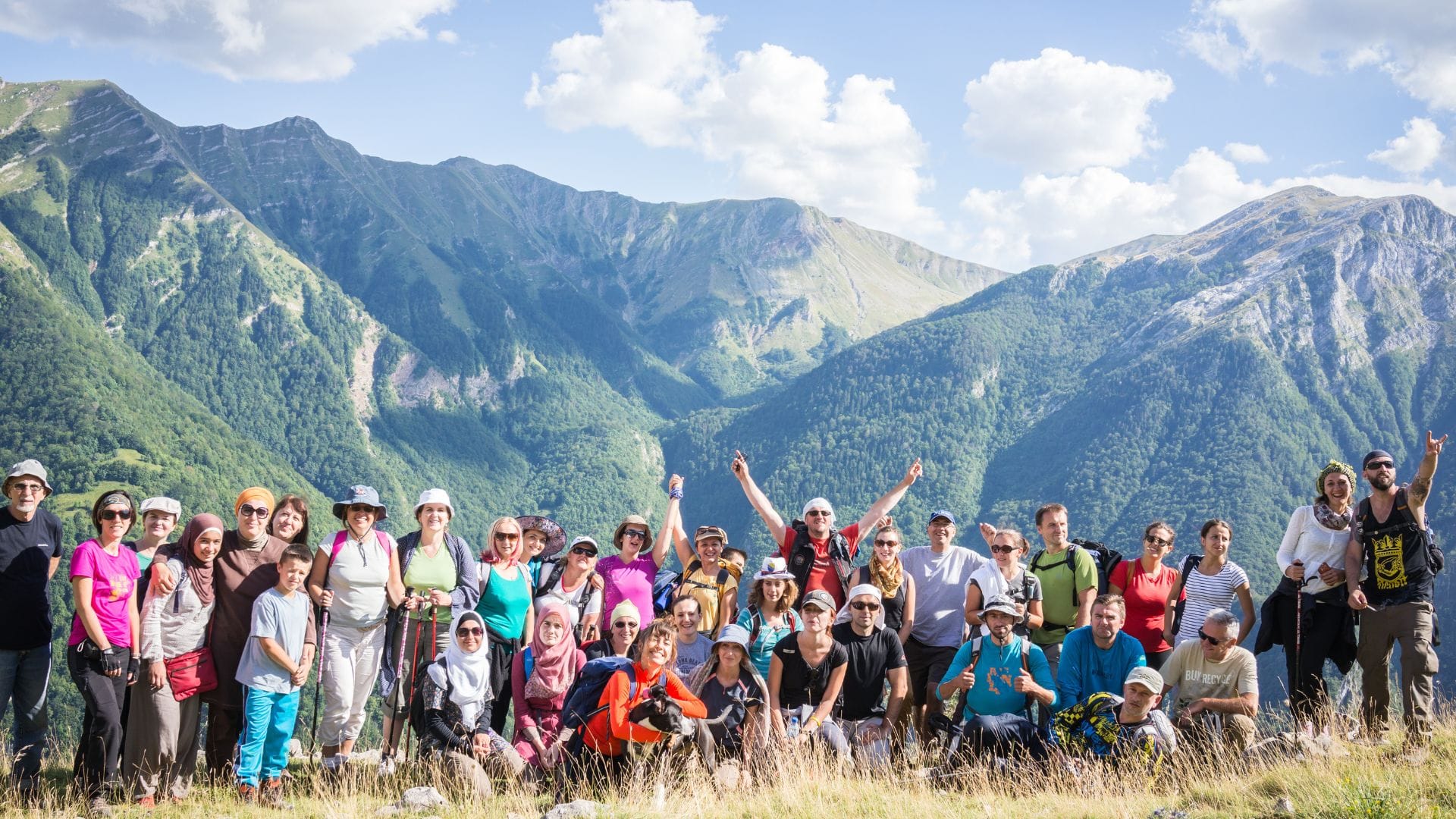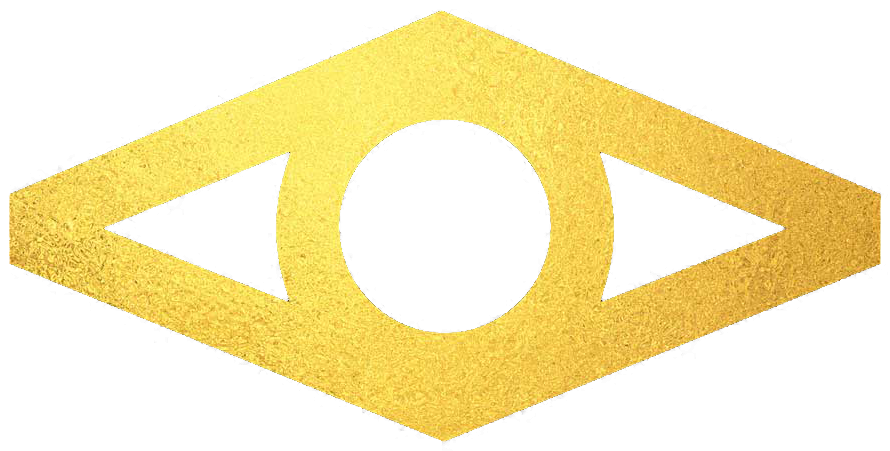Why is a healthy culture so difficult to build at work?

Culture in an organization is an invisible, intangible and qualitative “field” that, while it can be measured and observed, is really to be found in the quality of the inner life of people and in the spaces between people. It’s difficult to control or manage this, as people are free to think, feel, and engage however they choose.
Which lies at the heart of the issue: culture lives or dies with the quality of what everyone in the company THINKS. Everything, good and bad, flows out from there.
What a massively personal and intimate implication!
I do not believe this is usually considered when attempting to tweak organizational culture.
Why culture is so challenging to improve at work is complex, but we really do need to understand it, because it holds some secrets about where humanity is going next, and gives us insight into how we can re-think and re-design our work spaces to accommodate what the future is bringing toward us.
And if we do so, then I believe those businesses will have an unfair advantage in the marketplace compared to those who don’t.
I recently spoke with some very experienced CEOs about culture and here are some direct quotes from them: “culture is really hard to build today”. “Creating an open culture where everyone feels comfortable is really challenging”. “The breadth and depth of mental challenges … is staggering”. “It has never become more impossible to lead people”.
I’d like to present my perspective on why this is so difficult and let’s see how it lands with you.

The great inflection point
We are at an inflection point, particularly in western societies, but forced on everyone since we are now mostly a global society. This inflection point is about the end of the shelf life of the old status quo, the old world, and the slow awakening of a new world trying to be born.
The old, and dying, worldview has its origins in ancient Roman culture, materialism, and the reign of the intellect that culminated in the industrial era. All our political, economic and social norms are derived from the old world, have peaked, and are decaying now in ways we struggle to fully understand.
Let’s just quickly look at some evidence of this decay.
The economic advantages the boomer generation enjoyed are absent for their children, and even more so for their grandchildren.
Politically, democracies all over the world are collapsing into forms of nanny states run amuck, with regulation becoming a life purpose for whole swathes of government. We now need regulation to manage the regulation; new laws to offset imbalance and harm done by old laws. Government has become bloated and dangerously hopeless at everything but extraction of taxpayer money.
Government-run migration has shifted social landscapes faster than we can handle; entrepreneurship has become more challenging than ever before. We can no longer agree on anything but are existentially polarized, misinformed, propagandized, and confused.
Never have we witnessed so much nihilism, mental illness, tribalism, and despair.

The being born world
The being-born world on the other hand, in response to the decay of societal norms, hints at what lives super-consciously in humanity as the next step.
The future is already coming toward us.
We can see bright spots of future potential coming to life in “parallel structures” — a term coined by Vaclav Havel, the former president of the Czech Republic who ushered his country out of communism into democracy in the 1990s. Parallel structures arise wherever the old structures are too oppressive, and bring activities of economy and culture that operate outside of the normal channels.
We are seeing this for example where people get their news which has fundamentally shifted away from major legacy news channels toward independent journalism and long-form podcast shows.
We can also see a major shift away from conventional food and medicine toward healthier alternatives, more natural lifestyles, and a longing for more meaningful connections to nature.
We can see the rise in cryptocurrency as a bid for freedom from the unholy marriage of a state-run economy.
In short, we can observe a shift toward a morality arising out of the suffering engendered by the sicknesses of the old way of life. A morality that isn’t procribed by an outside authority but that arises from within, motivated by and borne out of love and concern for others and the state of the planet.
It’s a new, more mature, social impulse that is being born.

A new social impulse is coming
The practical implications of the inflection point, this shifting of worldviews, is that our current beliefs about the world that have gotten us here in the present time isn’t going to get us to something new and better.
We will need to fundamentally change our paradigm.
More clues can be found about what is trying to be born in the fact that society is giving us abundant reasons to rely less and less on outer forms of hierarchy and centralized authority, and to develop instead a strength of mind and character that gives us our own internal navigational tools, and that prioritizes the growth toward a moral impulse. This, in turn, encourages us to think at “human scale”.
Human sized, more localized, in harmony with life — decentralized.
What are, then, the implications for business today? How are we impacted by this inflection point at work?
The workplace is a fractal of societal patterns, and the inflection point is felt perhaps more keenly there since it’s where we spend most of our time. We can observe phenomena such as the Great Resignation as dissatisfaction with how people are treated at work, and also how they think about the value of their work and the struggle to find meaning and purpose in it.
They are after something more, en masse, than what a crumbling society can give them.
The fundamental paradigm shift is already underway.

Management principles have run aground
Management principles commonly employed at work today are built upon some basic assumptions arising from evolving modern sciences about psychology and behavior. For example, we moved from an autocratic and bureaucratic approach to work design, to a machine-based paradigm, and finally behavioral - all of which have used external means of control and management imposed upon the worker.
We still think like this, though now we’re adding a desire for performance to actually matter to our workforce. And so we bring in motivating factors such as incentives, rewards, and recognition.
However, there is a big problem, and I highlight this because it’s pointing to the paradigm shift needed: humans are not peasants (subject to autocratic bureaucracy), nor are they biological machines (control of bodies and processes), and nor are they animals (behavioral science).
Studies can already tell us such approaches are not working anyway.

The emerging new human
Which brings me to what I’ve been alluding to all along: we have grown out of the need for imposed outer structures and distant authorities of governance that have ruled us since the beginning of time.
We are growing into the need to provide those structures for ourselves and to be our own inner authority, ruled by a wisdom and strength we’ve fought for and earned as humanity over eons of time.
This inner wisdom might not be always particularly obvious, but it’s there — in potential. We have only to awaken to it’s presence, and commit to bringing it forward.
Let me dig in to what is present in potential a little deeper though.
As instigators of our own thoughts, feelings, and behaviors, we are ultimately responsible for them - as any good therapist can tell you - and this is healthy for modern humans. It isn’t appropriate any longer for people to be told what to think, nor is it healthy to make others responsible for our own choices.
But I’m still speaking around the point, which is we have an “I” nature, an individual self (that aspect in you that can say “I am”) that is always walking a line between stimulus and reaction, seeking that middle point which is freedom from inner compulsion or dictates from without. We have to take into consideration that we now have free will; we have the freedom to create or destroy.
All of human evolution is centered around this reality and it’s ongoing development.
Will we devolve into an animalistic state of being, run by our lower natures and baser desires, or will we choose a higher road that is governed by a higher morality in us?
Will we choose enslavement to our egoity or redemption from it?

Business is dead, long live business
I believe business today is suffering, and will suffer more and more, from an (as yet) inability to recognize this essential nature of being a modern human, and continues to make the mistakes in work design and people management that undermine the being born world.
And just to get a bit more granular on this, instead of thinking about culture development as a “system” that can be tweaked, managed, or fixed, it’s time we left behind the mechanistic and animalistic approaches to managing the workforce entirely because they are destroying what humanity at work we have left.
What would it look like to do work design and people management from the point of view of a new paradigm?
I propose we are ready for a new understanding, that humans are now on a long developmental arc that is all about self-actualization; about growing, maturing and deepening into an experience of our “I Am”, and gradually emancipating ourselves from the vices of egoity and materialism.
It becomes about finding grace and freedom in a larger, higher, more mature state of being. To grow into our true human potential is to come into harmony with the lawfulness of the world, and to discover our role in it’s becoming as well as our own.
We need to help bring this to life in our work places; this is what people are generally longing for when they hunt for a career or a path that appeals — self-actualization, meaning, a sense of a higher purpose, and a contribution they can make to others.
At work, in practical terms, this means we have to have new and higher expectations of ourselves for how we show up at work, and by extension have higher expectations for how we are received at work.
What does self-actualization take, especially in the context of work?

The practice of self-actualization
I’ve talked a great deal in the past about the three soul phenomena of thinking, feeling, and willing, and have usually spoken about these in places like the MagentaFM podcast from the point of view of dysfunction and mental health.
However, these three soul attributes can also become highly developed organs of perception as well. And they provide a helpful conceptual framework with which to observe self-actualization.
For example, we can develop our capacity for thinking to a higher degree than is usually asked of us. I don’t mean thinking as in an intellectual, academic activity, but I mean the ability to think something through in a practical way; to think in pictures or in functions, instead of abstractions. To be able to let go of form for the sake of function — what outcomes do you want to see from the completion of your list of to-dos? What would you expect to appear? And if you thought it through properly, can you reasonably expect it to appear in that way?
Being able to think things through with a disciplined objectivity is a skill grown from training. While training our thinking is hard to do, it’s worth it — just like getting fit and strong from working out, only this is with the mind and heart.
We can more sensitively observe what is going on around us if we know how to pay attention, and see where inefficiencies and lack of awareness have crept into operations and systems that undermine desired outcomes.
We would have less blind spots.
Thinking in pictures means leaders can develop a capacity to hold a global overview, which becomes a finely honed intuition that can guide them toward the right decisions even and especially through uncertainty, doubt, and fear.
Our feeling life can become less self-absorbed and egoic and more outward facing and cognitive in style. Non-egoic feelings like wonder, respect, warmth, or equanimity tell you far more truth about the world.
Development in the feeling life isn't about wallowing in feelings, but instead is partly about learning how to protect others from our projections until we learn not to project at all.
Fix the thinking and the feeling life through capacity building and healing, and your will power will follow naturally from there. This is one secret about the nature of the will.
You'll be unstoppable.
Do you see the competitive advantage such capacities bring if the whole company becomes this capable?

Throw out all the old management techniques
Business and our places of work are the new initiation sites, the places where human growth is happening. Initiation for times immemorial happened in the temples and sacred sites where the evolution of human development and consciousness was cultivated, studied, and supported.
Those temples and sites of initiation are long gone, and in their place are the halls and pillars of every day lives — at the train station, at work, and in our communities.
This means as leaders, founders, managers, and anyone who is responsible for a workforce and it’s culture, we need to get to know what this “I Am’ is, and how its development is supported in appropriate and healthy ways for our time and in preparation for the increasingly chaotic times to come.
Conventional and widely accepted approaches to management such as performance reviews, personality tests, rewards and incentives, standards and procedures, feedback, job descriptions, and on and on, need to be thrown out the window and a whole new way of engaging people at work has to be discovered.
And in true reflection of the new paradigm, it is going to be different and specific for each and every context, not something that can be an off-the-shelf solution, applied anywhere. And certainly not brought about by outside consultants or experts who are still invested in the old paradigm of management.
This is exciting! And daunting I’m sure. But if you’re wondering what the hell we are supposed to do without all the usual mechanisms of management, then I’d say the way there doesn’t have to be so disruptive as to threaten the company.
It can be an approach that over time and with growing capability renders the old ways obsolete.
And the new, more regenerative ways can then arise out of the transformed thinking and understanding of what the human being is. New approaches to work design can be co-creatively brought about for the unique work conditions of each company by its employees, management, and leadership.

Culture development is now creative and regenerative
Stepping outside of the old paradigm and into the new isn’t a particularly easy proposition, but it is well worth it.
The quality of work coming from people who are more capacitated to be creative and have more self-responsibility as a result of self-actualization will give a company a decided advantage in the marketplace.
This is really the essence of my work in the world: how humans grow at this inflection point so they can be more powerful and dynamic change makers. I don’t belong to the old world; I am a product of the new world that is trying to be born.
Which is why for many people my approach to human growth, culture development, leadership, and working with others comes from a strange and unknown place.
But I do believe there are many who intuit the being-born world, and who are uncomfortable enough with the way things are that they’re willing to step into some unknown territory, and wrestle with the uncertainty that comes with transformation.
And they are not alone; there are others who are showing the rest of us the way with their successful companies built from new paradigm thinking.
I’ll be sharing those stories and resources with you soon.
